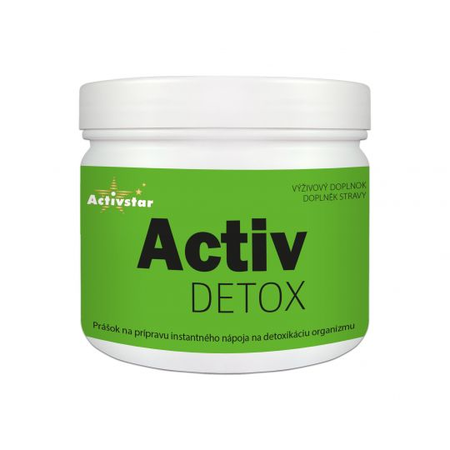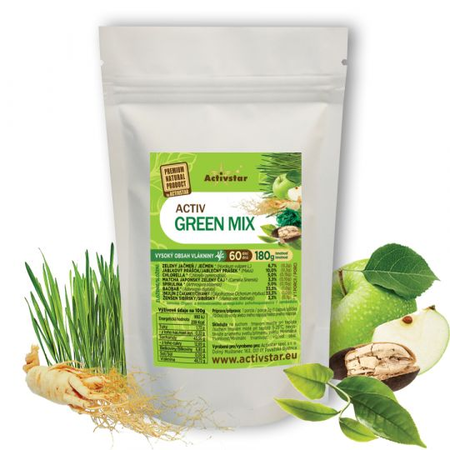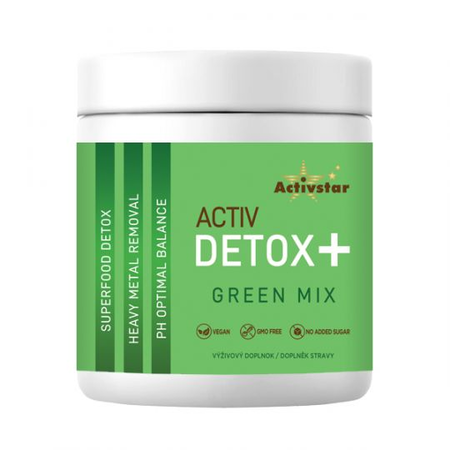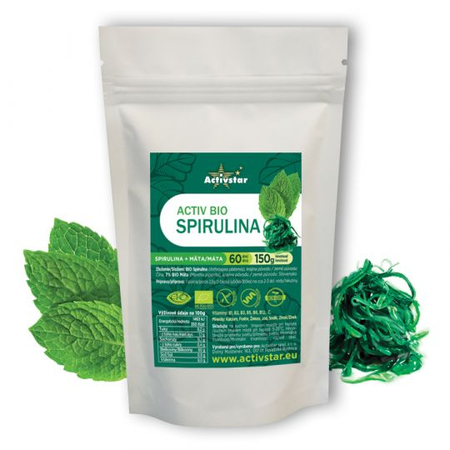In the past, it has served as a source of nourishment for many civilizations. It contains a large amount of protein, vitamins and antioxidants, supports immunity, provides energy and helps in the deacidification of the body.
It belongs to the blue-green algae, because in addition to chlorophyll, it also contains the blue dye phytocyanin. It is an ideal nutritional supplement for reduction diets and an excellent source of nutrients (vitamins, minerals, amino acids, antioxidants and active enzymes that have beneficial effects on the human body) for both children and adults.
Effects of spirulina:
- maintains normal blood sugar levels
- supports the body's immune system
- stimulates the production of red blood cells thanks to its high iron content
- high quality protein content (65-70%) including essential amino acids, therefore suitable for vegetarians and vegans
- gives energy and contributes to mental well-being
Spirulina is suitable for:
- Children with weakened immunity
- People who need to strengthen the body's resistance to harmful viruses and bacteria
- For weight loss diets and slowed metabolism of fats and sugars
- For diabetics
- For workload, stress and sports performance
Allergies
Spirulina is a suitable complementary food for allergy sufferers (also suitable for inclusion in children's diets, especially for pollen seasonal allergies). It helps in suppressing histamine production and thus alleviates the symptoms of allergies.
Source of protein
Spirulina is a rich, complete and easily digestible source of protein. It contains 18 amino acids, including all essential amino acids. According to studies, spirulina has a very high Protein Efficiency Ratio (PER), which means that your body can use these amino acids efficiently. The protein in spirulina is four times more absorbable than the protein in beef, for example.
Anemia
Already within a month of use, it contributes significantly to an increase in red blood cell count because it contains all the nutrients that are important for blood formation (iron, chlorophyll, protein, vitamin E, B12 and folic acid).
Immunity
Spirulina strengthens the immune system. Thanks to beta-carotene, chlorophyll, vitamin B6 and iron, it helps to improve the condition of all the organs involved in immunity - liver, bone marrow, tonsils, lymph nodes, thymus and spleen.
Liver and detoxification
Taking spirulina results in a significant improvement in the condition of the liver (burdened by jaundice, alcohol, drugs, etc.) within a few weeks. In addition, spirulina promotes the elimination of toxins, including heavy metals such as lead, cadmium, mercury, etc. As part of detoxifying the liver, it also helps cleanse the kidneys and blood and is also a powerful alkalizer.
Weight reduction
Spirulina is one of the most effective weight loss aids. It is a concentrated source of amino acids and carbohydrates that are quickly absorbed into the bloodstream. The hypothalamus sends out hunger signals at the very moment when blood levels of sugars and amino acids drop. Because spirulina helps to maintain a constant concentration of these substances, the brain does not start to signal hunger even when the stomach is empty.
It is the lack of nutrients that often causes "wolf hunger". If the body is deficient in nutrients, it tends to go into "austerity mode", i.e. slowing down the body's metabolic processes. This causes faster weight gain.
Senility
Spirulina is very helpful for the elderly, when brain capacity decline is common. It is spirulina that aids the intake and absorption of nutrients, thus greatly improving brain function, especially the area of motor learning.
Memory and concentration
Spirulina is rich in vitamin B6 and iron, which support concentration, learning and memory. Studies have shown that spirulina has a high neuroprotective effect, so it is advisable to take it in students and mentally demanding occupations.
Power
In addition to better fat burning, taking spirulina enhances performance.
Cardiovascular system
Spirulina has been shown in many scientific studies to increase the elasticity of blood vessels. Individuals taking spirulina have shown reduced total cholesterol, improved HDL, and reduced blood pressure.
Spirulina's uniqueness:
- The blue pigment Phytocyanin
- Highest concentration of protein
Pregnancy and lactation:
Most sources state that spirulina can be taken both in pregnancy and while breastfeeding. It is recommended especially if the woman is already accustomed to this seaweed. In any case, always listen to your body, do not experiment with new foods and always consult your doctor.
Nutrition facts per 100g:
- Energy value: 1436KJ/350Kcal
- Fat / of which saturated fatty acids 5,5g/2,6g
- Protein: 65.7g
- Carbohydrates: 18g/3.1g
- Fiber: 7.2g
- Salt: 0g
Vitamins:
- Vitamin B12: 0.16mg
- Vitamin B6: 18.4 mg
- Vitamin B2: 3.6 mg
- Vitamin B1: 2.4 mg
- Vitamin D: 0.24 mg
- Vitamin C: 10.1 mg
Minerals:
- Chlorophyll: 1038 mg
- Iron: 82.7 mg
- Iodine: 1.8 mg
- Potassium: 1363mg
- Calcium: 270mg
- Magnesium: 195mg
Contains high amounts of protein, vitamins and antioxidants, supports immunity, provides energy and aids in deacidification of the body.





0 Commets